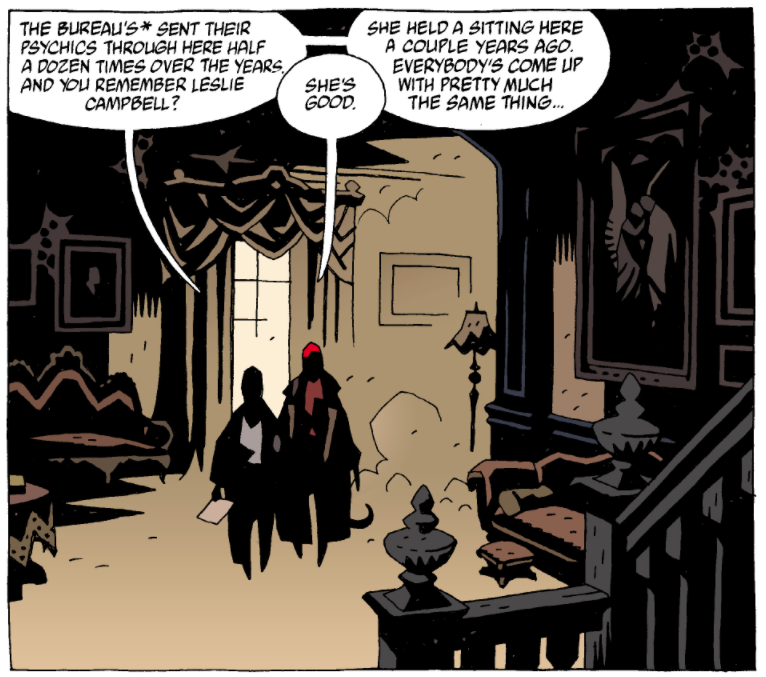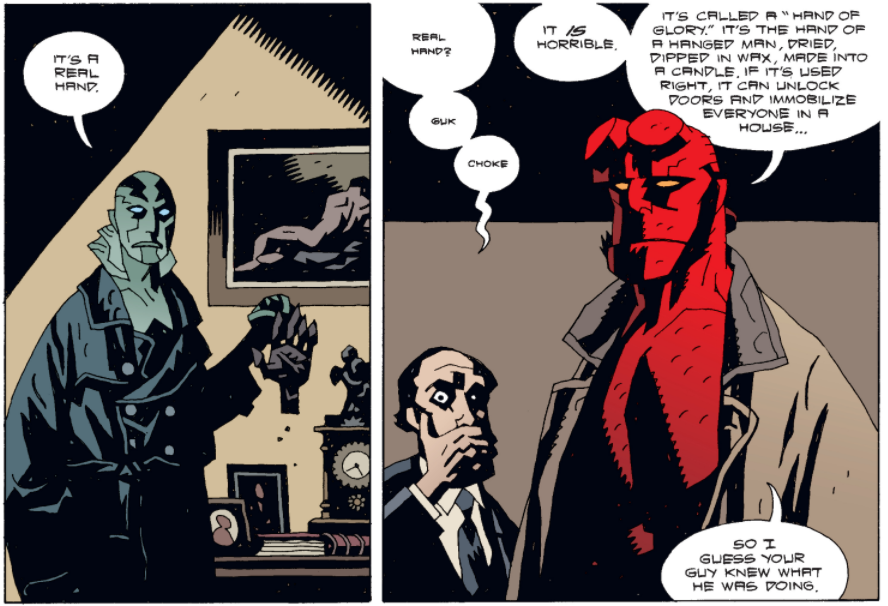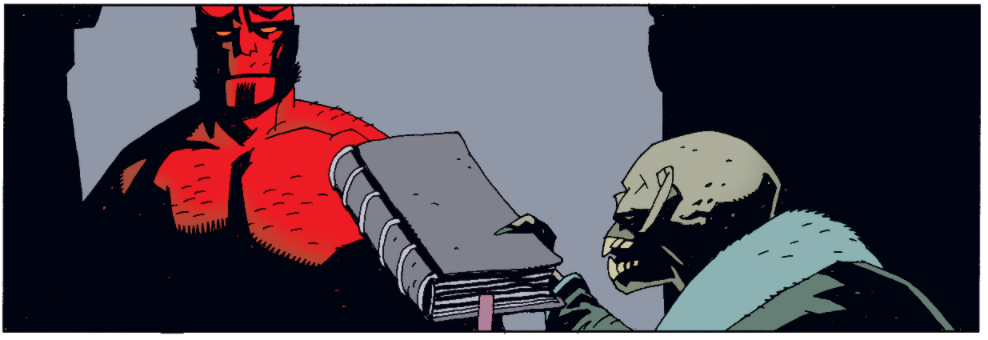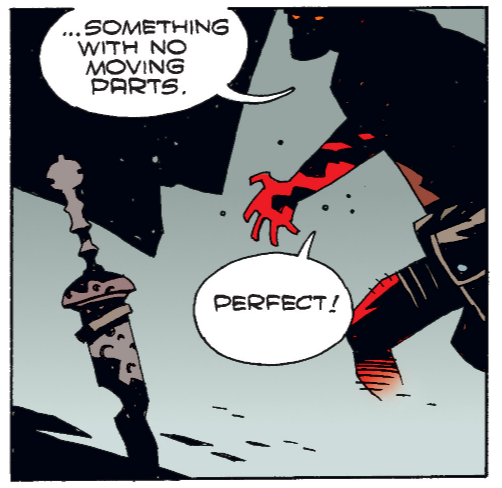Hellboy: The Roleplaying Game – Equipment
17th Aug 2020
Rob Burman
We're just a few days away from the launch of the Hellboy: The Roleplaying Game Kickstarter! The campaign will be launching on August 19th. Make sure you're signed up to be alerted when it goes live here. Today we've got a blog explaining how equipment works. Over to Alex Delaney for more details...
Agents do not go into the field with as much as they can carry! Instead, they organise their loadout into equipment deemed necessary for the Case File. Some of this gear might be left in their SUV, or at the basecamp location that has been chosen to support the investigation. Everything else will be carried by the agents and kept close to hand.
In Hellboy: The RPG, all agents have a standard number of inventory slots, which is then adjusted by their Strength attribute. This means agents with a high Strength are able to unlock more slots. You can also make use of class features and feats that enable you to carry more. The iconic B.P.R.D. Tactical Vest (TacVest) allows you to decide what is kept close to hand and what is stowed in your backpack.

Inventory slots are not defined by weight. Instead, they relate to the size, bulkiness, weight and usefulness of the item they can hold. For example, objects such as a pen or medallion are so small and incidental that they do not require an inventory space. A religious icon blessed by a saint could be crucial when fending off a particular foe but may only require a small slot. You will need to choose your weapons wisely!
When you are assembling your team, you will gain a resource called requisition points, which are used to purchase non-standard equipment. This resource is similar to, and inspired by, the requisition points used in Hellboy: The Boardgame. Gaining seniority in both clearance level and character level means your team will be able to requisition more equipment. If your team is facing a particularly challenging case file, you gain additional requisition points to counteract this. What’s more, role abilities, background features, and feats all provide means of gaining additional requisition points.

All requisitioned equipment is handed back to the Bureau when the agents return to base at the end of a Case File. This means the start of each new investigation is a fresh opportunity for the agents to prepare and plan against the coming threats. It also presents an opportunity to try new equipment and playstyles, rather than simply taking the same old items.
The type of equipment you can take varies from magical artefacts, specialised ammunition, breaching charges, to night vision goggles. You can choose additional firepower ranging form smoke grenades to harpoon guns. You can also request backup agents, a field lab, or priority remote access to databases or researchers, any of which can fill perceived gaps that the team may have. The Bureau has plenty of resources at hand to suit any mission.

If you choose a B.P.R.D. Consultant as a role for your agent, you gain specialist equipment from your parent organisation rather than the Bureau. A local police officer will have their own standard loadout, for example. This equipment is yours to keep and does not require requisition. Take care of it, however, for it it gets damaged or destroyed, it is not an automatic task to get it replaced.
It is important to choose the right equipment for the task ahead. A sound decision before heading out can mean the difference in sealing a creature back into its grave through well-placed explosives, or driving it back into its hole with the blessed medallion mentioned earlier.

Supernatural artefacts also have a number of new features in Hellboy: The Roleplaying Game, with each one having a passive ability that grants a bonus to saving throws against certain types of creature. They also have an active feature that is usually more powerful, such as causing a psychic backlash that drives the ghosts back. You will need to be careful over your timing when using the artefact’s active ability, however, because doing so nullifies its passive effect. If the situation is particularly dire, you can always opt to crush or otherwise destroy the artefact, which unleashes the full force of the power contained within it. Just be ready to face the disgruntlement of the archivists when if you make it back to the Bureau!

 GBP
GBP  EUR
EUR  USD
USD